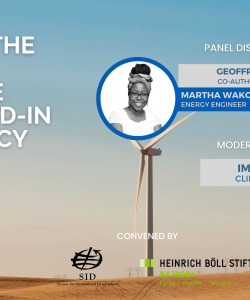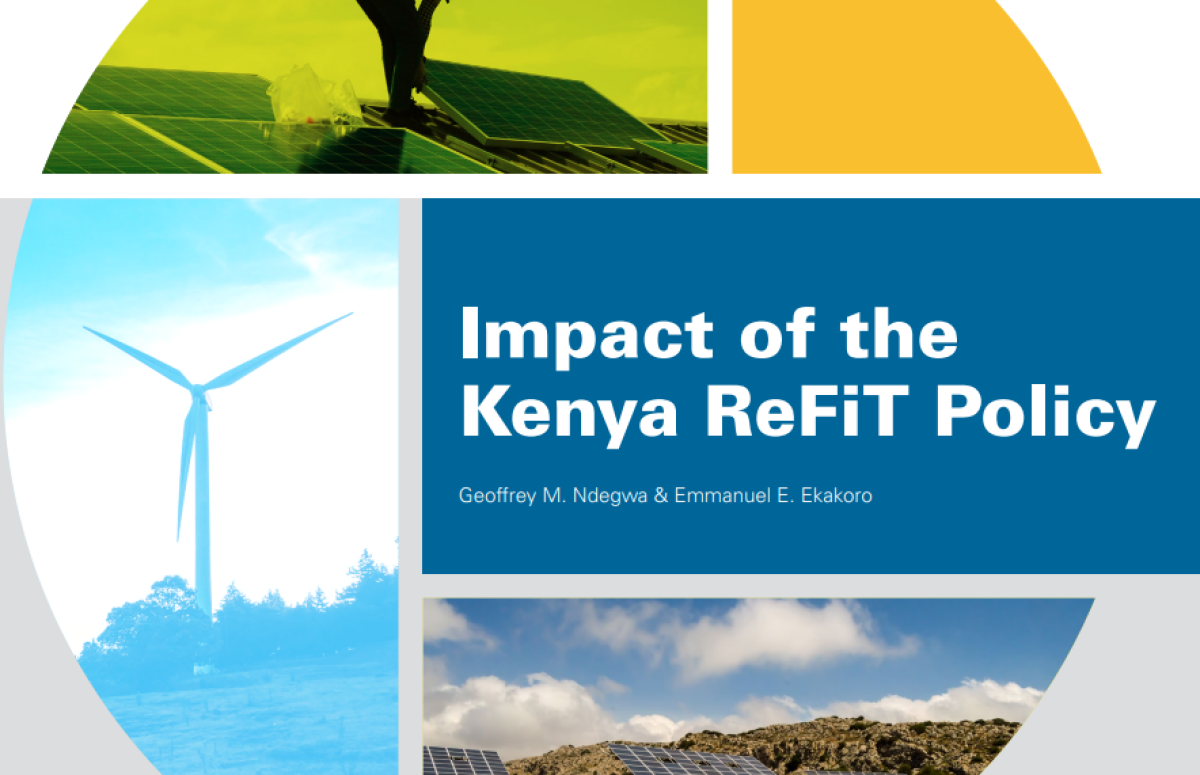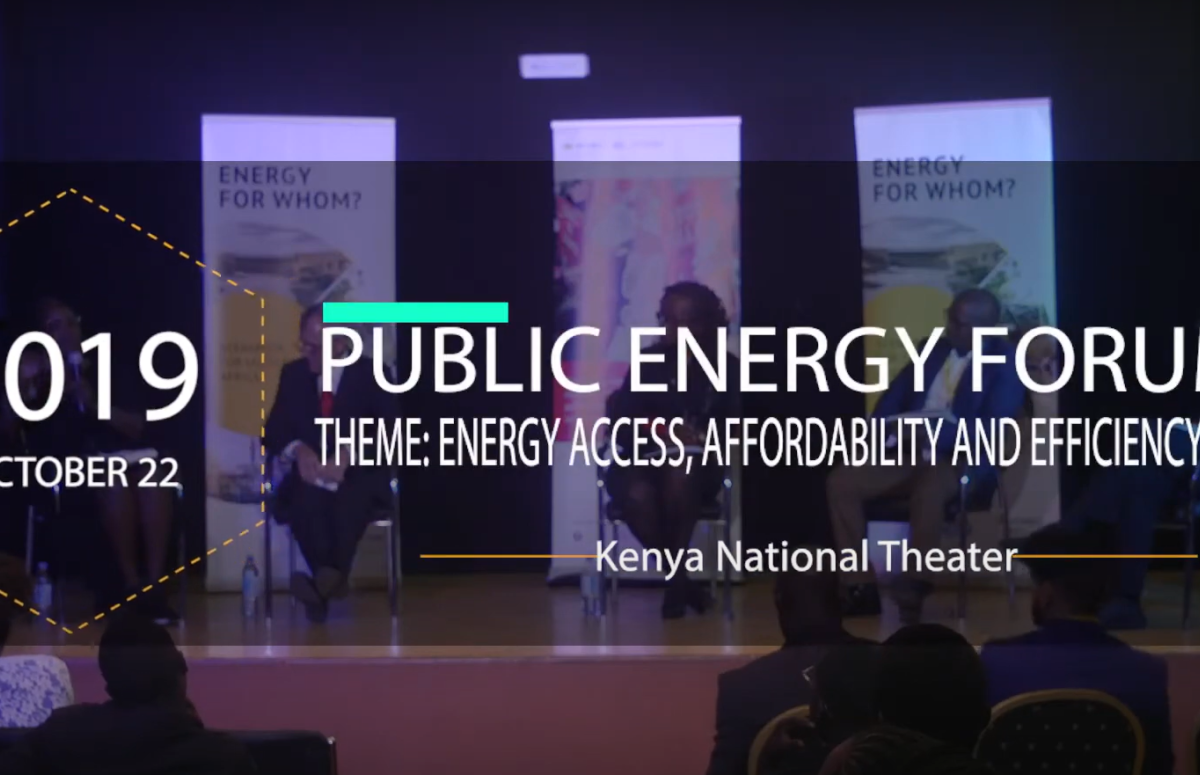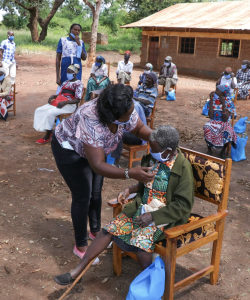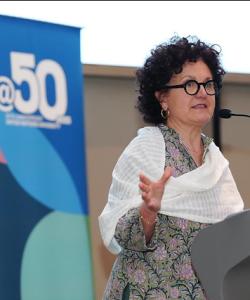Society for International Development (SID) with the support of the Heinrich Boll Foundation East Africa, hosted a Virtual Public Energy Forum themed, ‘Impact of the Kenya Renewable Energy Feed-In Tariff Policy’ On Thursday 7 July 2022.
The two-hour session, moderated by Iman Bashir, was attended by diverse energy experts with an aim of dissecting the ReFiT policy in Kenya to understand reasons and criteria behind the policy development and implementation process, as well as launch of the context paper: Impact of the Kenya Refit Policy, coauthored by Geoffrey Ndegwa and Emmanuel Ekakoro.
Geoffrey Ndegwa’s made an opening presentation that expounded on the history and objectives of the FiT in Kenya, the key features of the FiT policy developed 2008, the revisions made 2012, and the impacts so far experienced with the implementation of the policy, current developments as well as recommendations to this effect.
About the REFiT policy
Kenya’s REFiT policy was first ratified in 2008 with the aim of providing investment security to renewable energy power generators, reducing administrative and transaction costs and to encourage private investments in efforts to establish Independent Power Producers (IPPs). The initial FiT did not meet these requirements due to unfavorable tariff ceiling and high cost of generation hence was revised in 2010 and 2012 which saw the accommodation of more diverse energy sources and specific pricing for smaller projects sizes. The policy was codified to law through its addition to the Energy Act 2019. Some of its key features include, long investment period lowering investment risks, tariffs denominated in USD eliminating risk from current fluctuations, and guaranteed access to the grid and priority purchase.
Challenges and opportunities of the policy
Despite the benefits realized with ReFiT, such as increased access to electricity and employment opportunities and livelihood activities, there have been notable points of conflict- contestation of land acquisition processes between landowners, developers and even local governments, disenfranchisement of some members of the society, especially women and some cases children. Health impacts of some technologies, loss of livelihoods, environmental impacts of technologies put up e.g. wildlife, and access to employment opportunities.
Energy Engineer Martha Wakoli, co-panelist, expounding more to Kenya’s stance with the FiT, and the floated adoption of auctions policy. It was remarked that the government of Kenya is considering opening a competitive auctioning market, particularly in solar and wind. This is because there has to be balance between the intermittent sources connected to the electricity grid, those considered base load and dispatch-able such as hydro, geothermal can be regulated easily and can therefore provide baseload electricity and dispatch electricity when there is a high peak. Solar and Wind being dependent on availability of resources means that those sources must be deployed as soon as they are generating, with the only mitigating factor being their storage.
The auctions policy, beyond trying to see that the end user (consumer) gets the best price, it is also intended to regulate simultaneous influx of projects that would make it difficult to manage demand and supply on the grid.
Further, issues related to cost of access to electricity vis-à-vis quality and reliability featured in the panel discussion, as well as the supply and demand matrix of the commodity in Kenya. It is has been cited, Kenya produces more electricity than it can consume. Wakoli noted whereas there are indicators of over-planning in of supply of energy, which seems simple in principle, the challenges is at demand forecasting, where research is crucial and tied to human behavior. This is occasioned by factors such as: political will, socio-economic internal and external shocks e.g Covid-19, that results to diversion of funds appropriated for energy development to cater for such crisis, or long term development plans made and reviewed every 5 to 10 years, relatively slow to the speeds of the evolving technologies and emerging issues.
“Electricity is not only considered on capacity terms but also considered on its reliability and ease of access, as a form of that energy; The most expensive electricity is the one we don’t have.” - Martha Wakoli.
Some of the key highlights of the virtual forum, included: concerns on financing that favors Foreign Direct Investments (FDIs) as opposed to local investments, hence resulting to a foreign dominated PPAs. An all-inclusive stakeholder involvement approach was also encouraged, often, local communities are not consulted or sufficiently made aware in development projects, setting ripe ground for conflicts. There is need to review the education system to include some of the new technologies coming up and we see investors engaging in the education system through scholarships to prepare them for the job market. Civil societies also need to create awareness on them accessing jobs and educate communities on their rights.
Download a copy of the context report
A recording of this virtual forum is available on Society for International Development YouTube Channel- Society for International Development – YouTube. An e-copy of the context paper is also accessible for download: Click here to download the full copy of the context paper.

